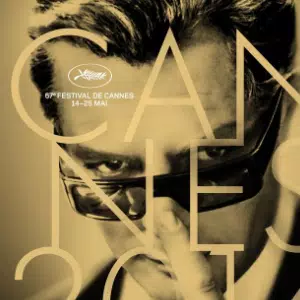
There are always great directors who leave us too soon. Laurent Cantet, the director who won the Palme d'Or at Cannes for his film Entre les murs, passed away in Paris on the 25th of last month at the age of 63, but the major media outlets didn't pay much attention to it.
I had an encounter with the director in 2018, interviewing him under the pretext of a screening of the film L'Atelier. The director struck me as a humble and mild-mannered intellectual, knowledgable and sincere, both open about his privilege as a white male and very much wanting to use that status to do something that would change inequality and injustice in society.
Laurent Cantet was born on April 11, 1961, in the small western French town of Melle, to parents who were both teachers. He went to the film school l'IDHEC (Institut des Hautes Etudes Cinématographiques) to study filmmaking, graduated in 1986, took a job as an assistant director, worked under documentary director Marcel Ophüls on the crew of The Troubles We've Seen: A History of Journalism in Wartime (1994), a film he made in the early 1990s.

In 1999, at the age of 38, Cantet made his feature film debut. Ressources humaines, with its strong documentary-like style, tells the story of a factory human resources officer who has to fire twelve workers, including his father. The film won Cantet a series of awards: the César Award for Best First Film, the European Film Award for European Discovery, and the Best New Director Award at the San Sebastián Film Festival in Spain. The film established Cantet's distinctive personal style for the next 20 years.
In 2001, his second feature film, L'emploi du temps, was released. Based on true stories, the movie tells the absurd story of an unemployed executive who continues to pretend to go to work, travel, and hustle without his family's knowledge. The movie was named by The Guardian as the 9th best film of the 2000s.
Cantet's 2005 film, Vers le sud, was selected for the main competition at the Venice Film Festival. Starring Charlotte Rampling in the lead role, the film is about an aging rich French white woman who comes to the economically meager but scenic Haiti to purchase sex services on a large scale, using local underage black men as her bed partners. The subject matter of the film resonates with the audience at a time when the gap between the rich and the poor is widening.

Three years later, the new film by Cantet, Entre les murs, was selected by the Cannes Film Festival. The competition for the Palme d'Or that year was fierce, with big names such as Paolo Sorrentino, Charlie Kaufman, Fernando Meirelles, Jia Zhangke, and Clint Eastwood all presenting major films. In the end, the jury, led by American actor Sean Penn, gave the Palme d'Or to Cantet's Entre les murs with a unanimous vote, more or less to the surprise of the whole world.
In those years, Cannes was also a place where seniority was the order of the day. Cantet's Palme d'Or was a surprise to the public, as he was a newcomer to Cannes's main competition section. That night, he received the trophy from Robert De Niro, thus becoming the first French director to win the Palme d'Or in 21 years, after Maurice Pialat won the award for Under Satan's Sun in 1987.
Entre les murs is about an ordinary French high school, but it also reflects a microcosm of the whole French society: racial integration, refugee hosting, the difficulty of teaching according to ability, and the resurgence of right-wing ideology. The movie also got the Oscar nomination for Best Foreign Language Film the following year but lost to Departures from Japan. Entre les murs also received a warm reception from audiences after its official release in France, becoming one of the very few Cannes Palme d'Or films to excel at the box office.
After this, Laurent Cantet traveled to Canada to shoot his first English dialogue film, Foxfire: Confessions of a Girl Gang. This was followed by a trip to Havana, Cuba for his Spanish-language debut Retour à Ithaque. In 2017, he returned to France, and reused the non-professional actor's approach to direct his new film L'atelier, a film that focuses on a group of young writing workshop participants in a gigantic debate with their teacher.

L'atelier was again picked up by Cannes, but this time it failed to make it into the main competition and was placed in the Un Certain Regard section. However, its reflections on French society nine years after Entre les murs, and its insights into the attraction of extremist groups to young people who aren't accepted by society, remain powerful.
Released in 2021, Arthur Rambo is Laurent Cantet's posthumous film. The film, about the huge impact of social networks on modern society, and also about his consistent concern for the fractured state of French society, failed to receive favorable reviews.
Last month, Cantet passed away after suffering from cancer. The Cannes Film Festival issued a eulogy on its official website, saying, “Laurent Cantet's consistent and humanist films depicted society with great sensitivity ...... An engaged artist, Cantet was a relentless humanist who sought out light in spite of social violence, and who found hope despite the harshness of reality. “























Share your thoughts!
Be the first to start the conversation.